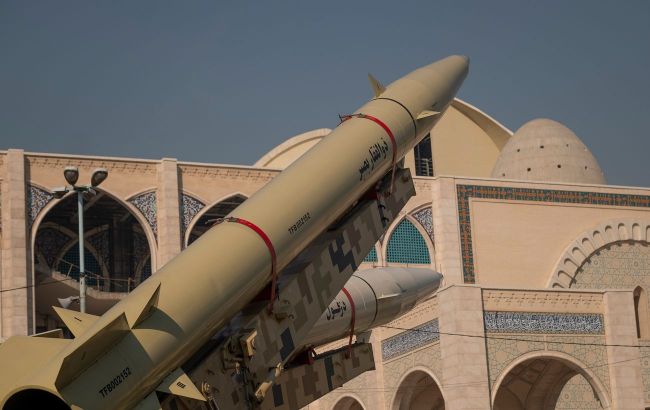Israeli strike cripples Iranian missile production
 Photo: Iranian Zolfaghar missiles (Getty Images)
Photo: Iranian Zolfaghar missiles (Getty Images)
On the night of October 26, Israel struck back at Iran for its missile attack on October 1, disabling a key component of Iran's ballistic missile production program, according to Axios.
According to three Israeli sources, the destruction of the equipment significantly hinders Iran's capability to upgrade its missile arsenal, potentially deterring further large-scale rocket attacks on Israel.
Sources report that Israel targeted 12 planetary mixers used in the production of solid fuel for long-range ballistic missiles, which make up a critical part of Iran's missile stockpile.
A senior US official confirmed that Israel’s strike crippled Iran's missile production capability.
Axios, citing Israeli sources, reports that the mixers Israel targeted are advanced equipment that Iran cannot manufacture domestically and must import from China. Sources indicate that restoring these mixers could take at least a year.
While Iran still retains a substantial stockpile of ballistic missiles, Israeli sources assert that the inability to produce new missiles will limit Iran’s capacity to replenish the ammunition supplies of its proxies, particularly Hezbollah and the Houthis.
Alongside the mixers, Israel’s attack also impacted four S-300 air defense batteries stationed in strategic locations that shield Tehran and key nuclear and energy sites in Iran.
Following the incident, Iranian military officials claimed that the Israeli strike was launched from Iraqi airspace. They added that minor damage was inflicted on several radar systems, which are now undergoing repair.
The Iranian military did not mention any damage to missile or drone production facilities, emphasizing that Iran reserves the right to respond.
Israeli sources, however, confirmed that the strikes were conducted from Syrian and Iraqi airspace, with some near the Iraq-Iran border.
Additionally, sources reported that the Israeli Air Force targeted a drone manufacturing plant and delivered a symbolic strike on a facility in Parchin, previously used for nuclear weapons research and development.
On the same day, President Joe Biden told reporters that the Israeli strike targeted only military sites in Iran, adding that he hopes this action will put an end to the exchange of strikes between Israel and Iran.
Meanwhile, the Qatari Prime Minister held a phone conversation with the Iranian Foreign Minister, expressing serious concern over the regional escalation following the Israeli strike.
"All parties in the region need to keep maximum restraint and avoid any further steps that could destabilize the region," the Qatari Prime Minister said.
Yesterday, the French Foreign Ministry urged Israel and Iran to refrain from further escalation.

